Fuel late-season hummingbirds with these fall-blooming nectar picks.

Hummingbird habits in autumn aren’t what they used to be—and that could be a good thing if you'd like to see more of the speedy little fliers whizzing around your backyard later in the season.
“Things have shifted,” says John Rowden, director of community conservation at the National Audubon Society. Ruby-throated hummingbirds, the only species found in most of the eastern half of the country, used to depart colder regions in September. Now some of them are lingering into October, with sightings in November and even December, far outside their usual wintering range.
Also on the rise across much of the country are fall sightings of western hummingbirds like the coppery rufous, calliope, Anna’s and others.
Scientists can’t say for sure what is causing the recent shift. But John notes that late fall hummingbirds “are actually spending a fair bit of time at feeders, guarding a feeder as a very valuable resource.”
While sugar-water feeders provide an easy feast, hummingbirds often take breaks from a feeder to visit nearby flowers or snap up tiny insects. And if a feisty hummer declares that a feeder is all mine, late-blooming plants give others a chance to eat.
So when summer's most sweltering heat is behind you, it’s important to have planted food sources that will provide snacks through the early fall rush and keep thriving, even after frost.
PLANT A FALL FEAST
This story is from the June/July 2019 edition of Birds & Blooms.
Start your 7-day Magzter GOLD free trial to access thousands of curated premium stories, and 9,000+ magazines and newspapers.
Already a subscriber ? Sign In
This story is from the June/July 2019 edition of Birds & Blooms.
Start your 7-day Magzter GOLD free trial to access thousands of curated premium stories, and 9,000+ magazines and newspapers.
Already a subscriber? Sign In
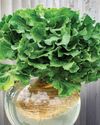
Basics of Hydroponics
Use these top tips and plant picks to have a successful soil-free garden
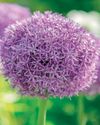
Rooted in Resilience
These hardy perennials will thrive in most zones
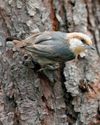
Social and Supportive
Brown-headed nuthatches take a helpful approach to raising their young
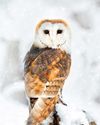
All About Owl Pellets
And why you should give a hoot about them
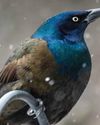
Ask the Experts
Advice from our pros about houseplants, bird feeding and more
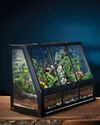
BRING THE OUTDOORS IN
Making a terrarium is about as close as you can get to a Zen DIY project. Once you have gathered the proper materials and squared away your plant selections, it's as simple as layering it all together and watching your mini ecosystem thrive. Here, I'll walk you through my foolproof process and cover all the required elements for good filtration, healthy soil, strong root growth and resistance against fungus and disease.

GROW THIS. NOT THAT
Six easy-to-grow houseplants—and six that may not be the right choice for you
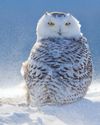
Winter MAGIC
Forecasts may be frigid, but grab your binoculars because birding opportunities are still incredible
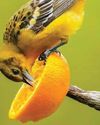
Sense or Nonsense? - Why some birds can taste and smell - but others can't
Does a porcelain berry taste like a blueberry to a gray catbird? Does a block of lard smell like frying bacon to a northern flicker? The short answer is no. While some avian species do have a well-adapted sense of taste or smell, they can't distinguish between flavors and odors the way humans can. They're not picking up every ingredient in the suet you put out, says José Ramírez-Garofalo, an ornithology researcher at Rutgers University in New Jersey and the director of Freshkills Biological Station in Staten Island, New York.
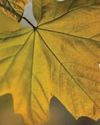
Maple Mania - Amazing facts about this fall foliage mainstay
Amazing facts about this fall foliage mainstay